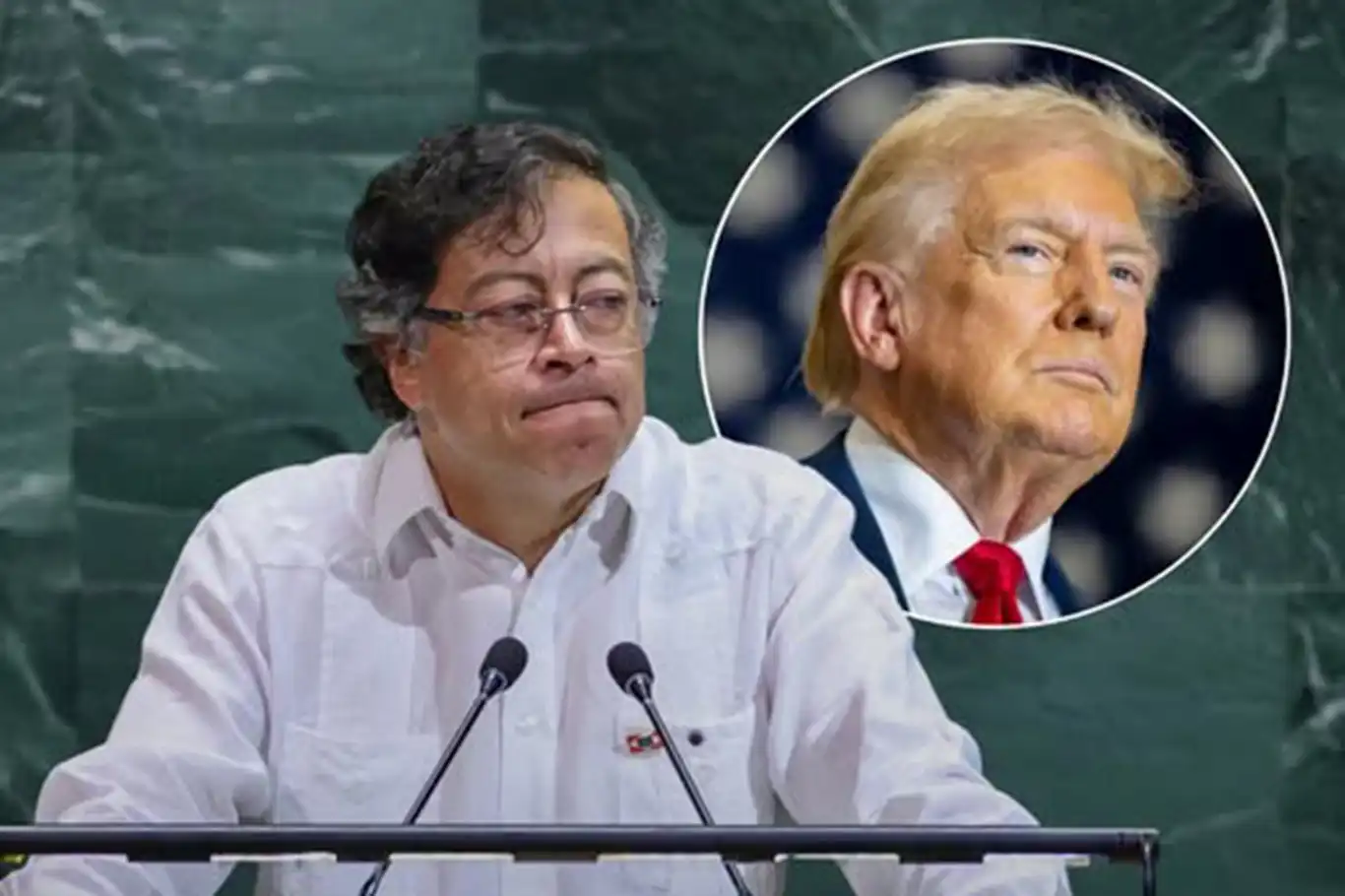Colombia recalls ambassador to U.S. as diplomatic crisis deepens over Caribbean strikes


Colombia has recalled its ambassador to Washington for consultations, a dramatic move signaling a severe rupture in its longstanding alliance with the United States.
The decision comes amid an escalating diplomatic row triggered by a series of U.S. military strikes in the Caribbean, one of which Bogotá claims killed a Colombian fisherman inside its territorial waters.
The crisis represents one of the most significant breakdowns in U.S.-Colombian relations in decades, threatening to unravel key counter-narcotics cooperation and destabilize regional security.
The diplomatic firestorm ignited after President Gustavo Petro publicly accused the United States of committing an "act of murder" and violating Colombian sovereignty. He identified the victim as a "lifelong worker and humble citizen," forcefully denying any connection to illicit activities.
The U.S. response from President Donald Trump was swift and incendiary. Aboard Air Force One, Trump dismissed the accusations and personally attacked President Petro, labeling him an "illegal drug dealer." He vowed to immediately end aid payments to Colombia and impose new tariffs on its key exports.
"We're going to close up drug cultivation sites if they don't do it themselves," Trump stated, adding a stark warning that the United States "won't do it nicely."
Interpreting Trump's remarks as a "threat of invasion or military action," the Colombian government moved swiftly. Foreign Minister Luis Gilberto Murillo announced the recall of Ambassador Luis Gilberto Mejía, a clear signal of profound diplomatic displeasure.
The Foreign Ministry condemned Trump's comments as a "direct assault on national sovereignty." President Petro further escalated the war of words, linking Colombia's decades of internal violence directly to U.S. drug consumption.
"Colombia provides the deaths and the struggle, while the U.S. provides the consumption," Petro asserted, criticizing Washington's recent financial contributions to anti-narcotics efforts as "meagre and null."
The immediate catalyst for the crisis is a series of U.S. military strikes in the Caribbean. Since early September, the Pentagon has conducted at least seven strikes on vessels as part of what it calls an "armed conflict" against drug cartels.
U.S. Defense Secretary Pete Hegseth stated the operations targeted boats linked to Colombia's National Liberation Army (ELN) and drug traffickers. However, Bogotá insists many of the targeted vessels were civilian, with at least 32 people killed across the incidents.
The most contentious strike occurred near La Guajira, where a Colombian fisherman was killed. President Petro has condemned the U.S. anti-narcotics strategy as a "colonial war on drugs," accusing Washington of using it as a pretext to control Latin America and its resources.
In a pointed rebuttal to U.S. tactics, Petro released a video on Monday showing the Colombian navy seizing nearly half a ton of cocaine off the coast of La Guajira. The accompanying message read: "Zero deaths in the operation."
This crisis is the culmination of months of deteriorating relations. Earlier this year, the U.S. "decertified" Colombia's anti-drug performance for the first time in nearly 30 years—a move Bogotá rejected as "politically motivated." Tensions were further inflamed when the U.S. revoked President Petro's visa after he urged American soldiers to "disobey the orders of Trump."
The suspension of U.S. aid and the imposition of tariffs now threaten to cripple joint intelligence, training, and anti-trafficking programs that have been a cornerstone of regional security for decades. (ILKHA)
LEGAL WARNING: All rights of the published news, photos and videos are reserved by İlke Haber Ajansı Basın Yayın San. Trade A.Ş. Under no circumstances can all or part of the news, photos and videos be used without a written contract or subscription.
Turkish Foreign Minister Hakan Fidan met with his Greek counterpart, Giorgos Gerapetritis, on the sidelines of the European Union Foreign Affairs Council in Luxembourg on Monday.
At least eight people have been killed and two remain missing following the passage of Tropical Storm Fengshen over the Philippines, authorities said.
Iran has declared that United Nations Security Council Resolution 2231, which endorsed the 2015 nuclear agreement, has officially expired, marking a new phase in the country’s nuclear policy and its relations with Western powers.